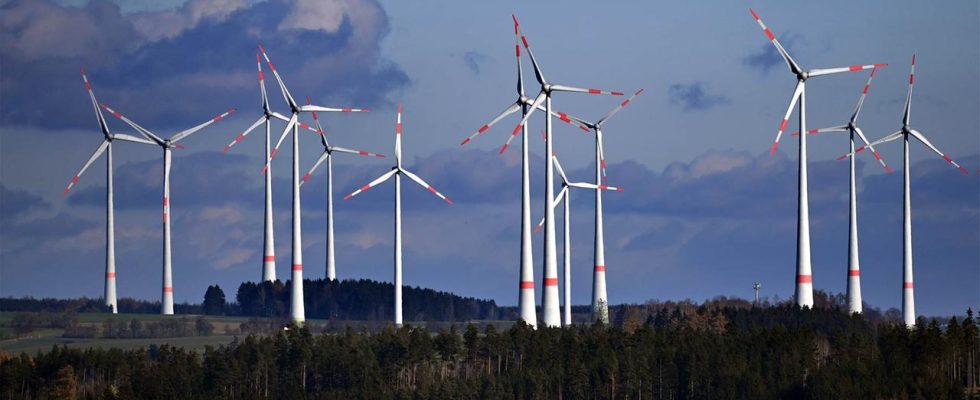If Germany advances the energy transition faster than before and thereby achieves its climate goals, it will also be worthwhile for the economy. This is shown by calculations by the consulting firm PwC.
According to calculations from a study by the consulting firm PwC, obtaining the energy required for housing, transport or industry from sun, wind, etc. as quickly as possible should be worthwhile not only ecologically but also economically. The national economy will fare more favorably in the long term if Germany actually manages to become climate neutral by 2045 as desired – this is the conclusion of the authors based on their model calculations, which are available to the dpa news agency.
Business-as-usual scenario and energy transition scenario
In their model, the authors compared a so-called business-as-usual scenario with an accelerated energy transition scenario. They included both investment and energy costs. In addition, they not only took into account the energy industry itself, but also all sectors in which energy is consumed – such as transport, industry or housing.
In the first scenario, the researchers assume that renewable energies will be expanded and electricity and heating networks will be converted at the same pace as previously planned. This would mean that Germany would not be able to become climate neutral by 2045, as enshrined in law.
In the accelerated energy transition scenario that the study uses for the comparison, Germany is investing more and faster in the energy transition than before, so that the goal will be achieved by 2045. Electricity and heating networks are converted more quickly. This would require total costs of 13.2 trillion euros in the period up to 2050 – slightly less than in the business-as-usual scenario, in which the costs are 13.3 trillion euros.
Cost slightly lower in accelerated scenario
In the long term, however, the accelerated scenario is significantly more cost-effective, the authors write, because after 2045 – when climate neutrality has already been achieved – investment costs in this field will no longer be necessary. In addition, the savings in energy costs would be greater because less money would be spent on pricing CO2 and energy efficiency would increase.
To obtain the results, the research team summarized existing studies and made their own calculations – including data from the Federal Network Agency, the Potsdam Institute for Climate Impact Research, the Federal Environment Agency and various other organizations. Costs for dealing with climate impacts, such as storms or floods, which are to be expected even more frequently with less climate protection, are not included. Inflation effects are also excluded.
“The investment costs as part of the energy transition are a significant cost driver, but energy costs should not be overlooked here,” said Nicolas Deutsch from PwC Germany. “The bringing forward of investments will quickly be overcompensated in the future by lower energy costs. “Not only climate protection, but also the national economy benefits from lower burdens.”
E.ON plans to invest 42 billion euros by 2028
The E.ON group also wants to contribute to the energy transition by announcing record investments in the electricity grid today. Investments totaling 42 billion euros are planned across Europe by 2028, the company announced at the presentation of its annual balance sheet in Essen. 7.2 billion euros are to be invested in 2024 – analysts had less on the list for both periods. The company had previously planned 33 billion euros by 2027.
All in all, around 70 percent of the amount now announced for the five years will be invested in the home market of Germany, as it was said. More than 25 billion euros alone are to be invested in the German energy network. Not least due to the move away from energy imports from Russia, the importance of a resilient power grid is increasing.
For example, E.ON takes care of new connections to solar and wind power systems as well as the modernization of the network infrastructure. High investments are also required to digitalize the planning, monitoring and control of the networks.

